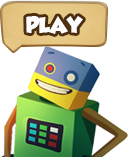
Many programming languages, each with their own unique features, have been either invented or derived from one another. Each language has different strengths and weaknesses, so frequently one language is better suited to specific applications over others. Some languages are used to create programs that solve problems or interpret data, while others are more suitable for entertainment applications.
It is impossible to create a single programming language that meets all needs and that can be used in all industries. Programming languages are often revised and even combined with other languages over time to create derivative versions that are better suited to a specific application.
As our world sees an influx of items that need a computer chip to function, software needs to be regularly maintained to stay up to date and functioning properly. Newer languages share some commonalities such as being faster, more intuitive, and closer in structure to spoken languages.
They are generally easier to maintain, with fewer syntax constraints than older languages. For example, R, one of the more recently-developed programming languages[EG1] , was designed by statisticians for data analysis. It is considered one of the easiest languages to understand and to learn to code with.
Python is well suited to scientific computing, so it is used by software engineers and back-end web developers. Java shines in web application development. HTML is used extensively in web development, and is considered the foundation of web pages. JavaScript is used by web developers to enhance HTML and make web pages interactive.
C is used by software developers and systems analysts to create applications that integrate with operating systems. C is also widely used in embedded systems development. C++, works as an extension of C, and is used to create games, graphics, and office applications. SQL enables programmers to create, read, update, and delete information in a database. Companies use SQL to gather data.
Application programmers write programs like presentation software, word processors, and spreadsheets. They create programs in high-level languages that are similar to the English language. Systems programmers must be particularly skilled in writing binary code, creating utilities, and working with operating system software. A systems programmer assesses both hardware and software systems to detect and solve problems.They are in charge of ensuring the computer’s systems are running efficiently.
Game programmers write code for console and computer games, including the low-level binary code that allows their programs to run faster and more efficiently. Using a set of game development tools, they plot, code, and install the game’s logic to make it sensible, fun, and interesting. Web programmers construct and design websites, coding markup and the site’s technical aspects.
Regardless of the type of application you want to develop, you can register for free and start your journey with RoboGarden now!
